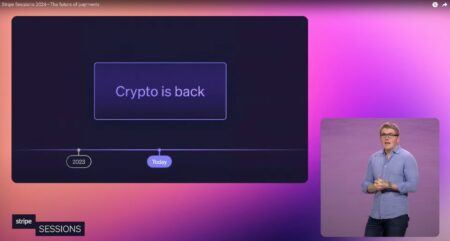Recently, Ethereum’s core developers finalized the list of code changes for the Istanbul hard fork. Ethereum co-founder Vitalik Buterin says that “this happened with *zero* involvement from The Great Dictator™.”
Vitalik made this comment on Twitter in relation to an article about the confirmation of code changes in Istanbul, Ethereum’s next major system-wide upgrade:
Reminder that this happened with *zero* involvement from The Great Dictator™
Much-needed gas repricings that add significant sustainability gains and open the door to ZKP/rollup L2 innovation.
Great work @peter_szilagyi and cohttps://t.co/I2ZKnwHVd9
— Vitalik Non-giver of Ether (@VitalikButerin) August 20, 2019
To understand why Vitalik is sarcastically referring to himself as “The Great Dictator”, we need to remember that he has often been accused by critics of Ethereum of being “in charge” of Ethereum’s development, thereby making the project far less decentralized than it might at first appear.
Perhaps, the best example of this type of attack came on 8 October 2018 when economist Dr. Nouriel Roubini referred to Vitalik as a “dictator for life” in the following tweet:
Decentralization in crypto is a myth. It is a system more centralized than North Korea: miners are centralized, exchanges are centralized, developers are centralized dictators (Buterin is “dictator for life” ) & the Gini inequality coefficient of bitcoin is worse than North Korea
— Nouriel Roubini (@Nouriel) October 8, 2018
A few days earlier, someone had asked Vitalik this question on Twitter: “@VitalklButerin any thoughts on how you will eventually detach yourself from the project?”
This is how Vitalik replied on 5 October 2018:
- “Already in progress; watch the repos, even much of the research is being done by@dannyryan, @drakefjustin, @icebearhww and others.”
- “I think ethereum can absolutely survive me spontaneously combusting tomorrow at this point.”
- “To be clear, ‘detaching”‘ meant detaching from *needing* to participate. No actual plans to disappear any time soon.”
And true to his word, possibly to avoid giving ammunition to critics of Ethereum’s governance process, Vitalik has, in the past couple of years, been mostly focusing on the research for Ethereum 2.0 (“Serenity”), which will introduce “Sharding, Proof of Stake, a new virtual machine (eWASM) and more.”
Péter Szilágyi, the core developer who is the team leader at Ethereum Foundation, had this to say about Vitalik having had zero involvement with the decisions concerning which EIPs (Ethereum Improvement Proposals) should be included in Istanbul:
I'd like to remind everyone, that “zero involvement from The Great Dictator” is not a feature. V has a brilliant mind and I'd much rather have him pinch in on ideas than keep him away due to politics. Just my 2c. https://t.co/CwBt5s9uim
— Péter Szilágyi (@peter_szilagyi) August 21, 2019
As for the Istanbul hard fork itself, according to a report by Coindesk, Ethereum’s core developers finalized the list of EIPs at a meeting held on August 15.
As per previous meetings of the group, which comprises a diverse set of Ethereum stakeholders, the plan is for Istanbul to be executed in two phases:
- phase 1: this consists of six EIPs; estimated to go live on the Ethereum mainnet in October;
- phase 2: this consists of those EIPs, such as the proposal to make Ethereum more ASIC-resistant by moving to a Programmatic Proof-of-Work (ProgPOW) consensus algorithm, that need “further testing and deliberation from core developers.”
At the August 15th meeting, Szilágyi said that activation of Istanbul phase one on Ethereum testnet Ropsten, which some people wanted to happen on September 4, may need to be moved further out in the future to give the teams working on Ethereum clients (such as Parity) sufficient time to test their implementation of the agreed six EIPs before the these changes are rolled out to the testnet.








